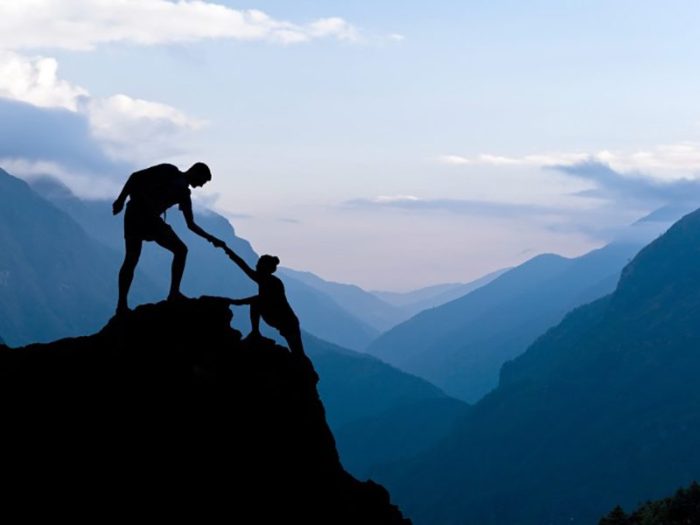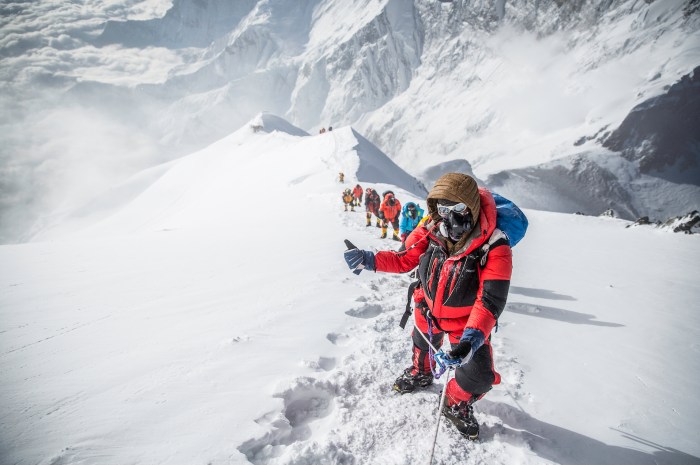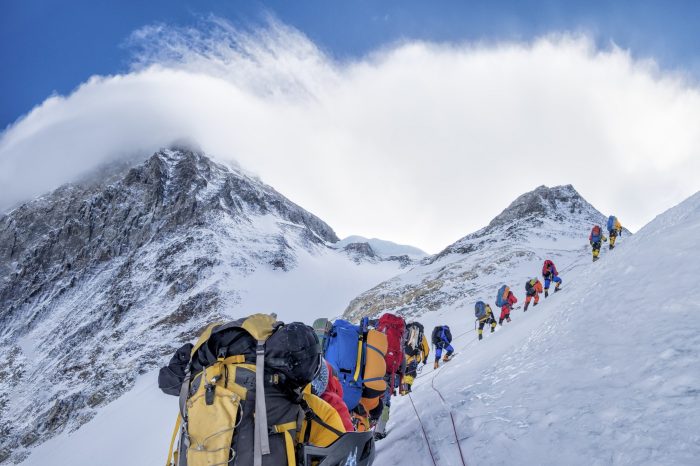A group of mountain climbers begin an expedition, setting the stage for this enthralling narrative, offering readers a glimpse into a story that is rich in detail and brimming with originality from the outset. This intrepid team embarks on a journey to conquer nature’s challenges, facing treacherous terrain, unpredictable weather, and the limits of human endurance.
As they ascend towards their目標, they will encounter both physical and mental obstacles, testing their strength, resilience, and unwavering determination.
Their journey is not merely a physical pursuit but a profound exploration of the human spirit. Along the way, they will forge unbreakable bonds, learn the true meaning of teamwork, and discover the depths of their own capabilities. Through their shared experiences, they will gain a newfound appreciation for the fragility of life and the indomitable power of the human will.
Pre-Expedition Planning

The pre-expedition planning phase is critical to the success and safety of any high-altitude mountaineering expedition. It involves meticulous preparation in several key areas:
Logistics and Supplies
- Route selection and itinerary planning
- Procurement of essential supplies, including food, fuel, and medical equipment
- Arrangement of transportation and logistics to the base camp
Roles and Responsibilities
- Identification of the expedition leader, guides, and support staff
- Definition of roles and responsibilities for each team member
- Establishment of communication protocols and emergency procedures
Training and Preparation
- Physical conditioning and endurance training
- Acclimatization to high altitude environments
- Acquisition of technical skills in mountaineering, including ropework, glacier travel, and ice climbing
Expedition Timeline and Stages
The expedition timeline Artikels the key stages and milestones of the journey, from the initial approach to the summit attempt and return:
Timeline and Stages
- Base camp establishment
- Acclimatization climbs to progressively higher altitudes
- Summit attempt and descent
- Contingency plans for weather or other unforeseen circumstances
Terrain and Obstacles
- Glaciers, crevasses, and ice falls
- Rock faces and steep terrain
- Altitude and weather conditions
Weather and Hazards
- Extreme cold, wind, and precipitation
- Altitude sickness and other medical emergencies
- Avalanches, rockfalls, and other natural hazards
Equipment and Gear

The selection and use of appropriate equipment is essential for the safety and success of the expedition:
Essential Gear, A group of mountain climbers begin an expedition
- Backpacks, tents, and sleeping bags
- Climbing ropes, harnesses, and ice axes
- Navigation and communication devices
Clothing and Footwear
- Insulated and moisture-wicking clothing
- Waterproof and breathable outerwear
- Specialized footwear for high-altitude mountaineering
Technology
- GPS devices for navigation and tracking
- Satellite communication for emergency contact
- Weather monitoring systems for forecasting and safety planning
Team Dynamics and Communication

Effective team dynamics and communication are crucial for a successful expedition:
Team Cohesion and Collaboration
- Importance of shared goals and values
- Effective communication and decision-making processes
- Strategies for maintaining morale and motivation
Living and Working in Close Quarters
- Challenges of living and working in close proximity
- Strategies for resolving conflicts and maintaining harmony
- Techniques for coping with stress and isolation
Communication Technology
- Satellite phones for emergency communication
- Social media for sharing updates and connecting with the outside world
- Use of technology to facilitate collaboration and decision-making
Environmental Considerations: A Group Of Mountain Climbers Begin An Expedition

High-altitude mountaineering has the potential to impact the environment:
Environmental Impact
- Pollution from waste and human activity
- Damage to ecosystems and wildlife
- Melting of glaciers and snowpack
Ethical Responsibilities
- Minimizing environmental footprint
- Respecting local communities and cultural practices
- Adhering to Leave No Trace principles
Sustainable Practices
- Proper waste disposal and recycling
- Use of renewable energy sources
- Education and awareness programs for climbers
Helpful Answers
What are the key challenges faced by mountain climbers during an expedition?
Mountain climbers face a multitude of challenges during an expedition, including treacherous terrain, unpredictable weather, altitude sickness, and the need for teamwork and self-reliance.
How do mountain climbers prepare for an expedition?
Mountain climbers undergo rigorous training and preparation for an expedition, including physical conditioning, acclimatization to high altitudes, and technical skills training.
What is the importance of teamwork during a mountain climbing expedition?
Teamwork is essential for the success and safety of a mountain climbing expedition. Climbers rely on each other for support, motivation, and decision-making in challenging and potentially dangerous situations.